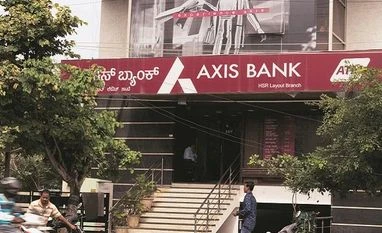Axis Bank, the third-largest private sector lender in the country, will buy the retail business of Citibank India in an all-cash deal for Rs 12,325 crore. This is the biggest deal in the banking space since the acquisition of ING Vysya Bank by Kotak Mahindra Bank in 2014, which was valued at Rs 15,000 crore.
The deal includes Citi’s credit cards, retail banking, wealth management, and consumer loan businesses, besides the consumer business of its non-banking financial company, Citicorp Finance (India) Limited. This, however, excludes Citi’s institutional client businesses in India, Citi said in a statement, adding that Axis Bank was selected following an extensive and competitive auction process. Citi said it remained committed to serving institutional clients in India and globally.
Axis Bank will offer 3,600 employees of Citi’s consumer banking business a remuneration that is at par or higher than their current packages.
For Citi, the sale is part of Chief Executive Jane Fraser's plan to overhaul its business by exiting retail banking operations in 13 countries where it does not have the necessary scale to compete.
“As we move forward with this transaction, India remains a key institutional market for Citi,” said Peter Babej, Citi Asia Pacific CEO. “In line with our broader strategic repositioning, we will continue to support our institutional clients in this core market and across APAC, delivering the full power of our global network to enable their growth,” he added.
Axis Bank expects regulatory approvals in 9-12 months and another 18 months to fully integrate the operations. Apart from the cost of the acquisition, Axis Bank will pay another Rs 1,500 crore to Citi for servicing the customers during the transition period.
“The transition period is to make sure that there is no disruption in their service experience,” said Amitabh Chaudhry, MD & CEO of Axis Bank.
“The combined CASA ratio on a pro-forma basis will improve by 200 basis points to 47 per cent and it will also be LCR (liquidity coverage ratio)-accretive. The consumer lending portfolio of approximately Rs 18,500 crore comprising mortgages, asset-backed finance, small business lending and personal loans -- these are our focus segments as well and it will deepen our relationship with this space,” he said.
The payment will be made to Citi once the assets are transferred into the books of Axis Bank, which would happen after the regulatory approvals. The impact on the common equity tier-1 capital of Axis Bank will be 180 bps, and another 50 bps due to risk weight to acquire the loans. One basis point is equal to 0.01 per cent.
“The world-class Citi phone banking services are part of the transaction. The acquisition strengthens our market position, reduces the gap in key segments with peers, and provides an opportunity to accelerate retail business growth in a value-accretive manner,” Chaudhry said.
Post the acquisition, Axis Bank will have around 28.5 million savings accounts and close to 11 million credit cards.
One of key gains for Axis Bank from the deal is the credit card business. Axis will acquire 2.55 million credit cards of Citi, taking the total number of Axis Bank cards to over 11 million. While Axis would still remain at number four in terms of the total number of credit cards, in terms of spend, Axis will become number three.
“Average spend per card for Citibank remains around 1.4 times higher than the industry average, suggesting higher usage by the customers,” said Nitin Aggarwal, analyst with Motilal Oswal Financial Services. “This indicates a high value proposition which could see the other major players bidding for the credit card portfolio, thereby strengthening their presence in the overall market.”
Citibank has been losing market share for the last few years as their credit card portfolio has not grown. Over the past five years, the total number of cards grew at a muted compound annual growth rate of 3 per cent, while spend grew at 11 per cent CAGR, much lower than the industry average.
As a result, Citibank lost its market share considerably, which stood at 4.3 per cent in terms of outstanding cards and 6 per cent in terms of spend as of January 2021. In terms of the total card base, Citi is the sixth largest player.
Chaudhry assured that Citi customers would continue to avail of all the rewards, privileges and offers they were previously entitled to during and after transition.
Unlock 30+ premium stories daily hand-picked by our editors, across devices on browser and app.
Pick your 5 favourite companies, get a daily email with all news updates on them.
Full access to our intuitive epaper - clip, save, share articles from any device; newspaper archives from 2006.
Preferential invites to Business Standard events.
Curated newsletters on markets, personal finance, policy & politics, start-ups, technology, and more.
)